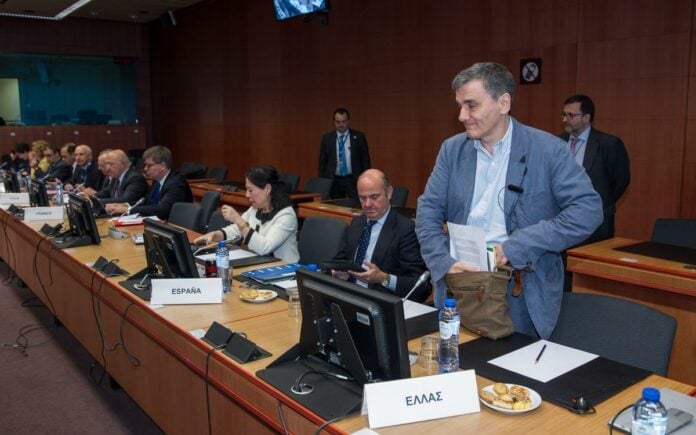By N. Bellos
A delayed first review of the Greek program (third bailout) was finally concluded after yet another all-night session at the Eurogroup in Brussels, with the highlights being a set of new prior actions demanded from Athens in order to disburse the loan tranche and a modest “road map” for Greek debt relief.
The 11-hour session began on Tuesday afternoon and ended in the early morning hours of Wednesday.
As expected, the issue of Greek debt relief dominated talks and back-and-forth negotiations between IMF representatives and European institutions. In the end, IMF Europe director Poul Thomsen said a proposal will be submitted to the Fund’s board of directors for participation in the Greek bailout until the end of the year, and following an analysis of the Greek debt’s sustainability. The Fund will then decide, in all probability, whether the austerity and reform packages enacted by Athens will ensure that the debt is sustainable. Thomsen, Eurogroup chair Jeroen Dijsselbloem, IMF chief Christine Lagarde and, according to reports, German FinMin Wolfgang Schauble, engaged in continuous negotiations over the Greek debt relief issue.
On his part, ESM managing director Klaus Regling said prior actions linked to the disbursement of the two tranches of a 10.3-billion-euro loan include a full liberalization of the framework for managing and reselling non-performing loans (NPLs) on the secondary market, something that the leftist Greek government is obliged to do before the first loan installment of 7.5 billion euros is disbursed in the first half of June.
European institutions were again, according to reports, unimpressed with the latest legislative measures on the sector, as NPLs are now estimated to exceed 100 billion euros in the credit-asphyxiated country.
Additionally, stepped up privatizations and better legal protection for a recently enacted “superfund” set to receive numerous state-run entities and assets was demanded before the second installment of 2.8 billion euros is paid out to Athens. Privatizations and further liberalization of the energy sector were also cited by creditors.
Switching to Greek debt relief, the “road map” proposed by Europeans and accepted by the IMF foresee short-, medium- and long-term measures, although most of the proposed measures will be decided after 2018 – a position that echoed the German position of waiting after the completion of the current bailout program.














